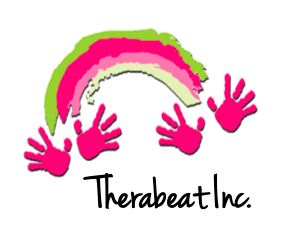As part of my internship, I have the opportunity to work individually with kids as well as in groups. For a lot of our kids working on social goals, doing so in a group of peers has huge benefits.
A. Blythe LaGasse did a research study looking at the benefits of group music therapy sessions specifically for kids with Autism. She wanted to observe the impact of these group sessions on eye gaze, joint attention, and communication. The children ranged from ages 6 years old to 9 years old and attended 50-minute music therapy sessions for ten weeks. The two domains that were most successfully improved with the intervention were joint attention with peers and eye gaze. For joint attention, this means the children could more successfully track where a peer was devoting attention as well as share attention on one object with another person. With eye gaze, this was directed at peers as well as the facilitators. Overall, more successful peer-to-peer interactions were developed in the music therapy setting as opposed to a non-musical social skills group.
As we gear up for our fall semester and new classes are forming, I look forward to helping encourage these same results for our patients. I also am excited to witness other benefits and see how else these music therapy groups can foster growth.
Source: LaGasse, A. Blythe. (2014). Effects of a Music Therapy Group Intervention on Enhancing Social Skills in Children with Autism. Journal of Music Therapy 51(3), 250-275.
Thanks for reading,
Lauren







